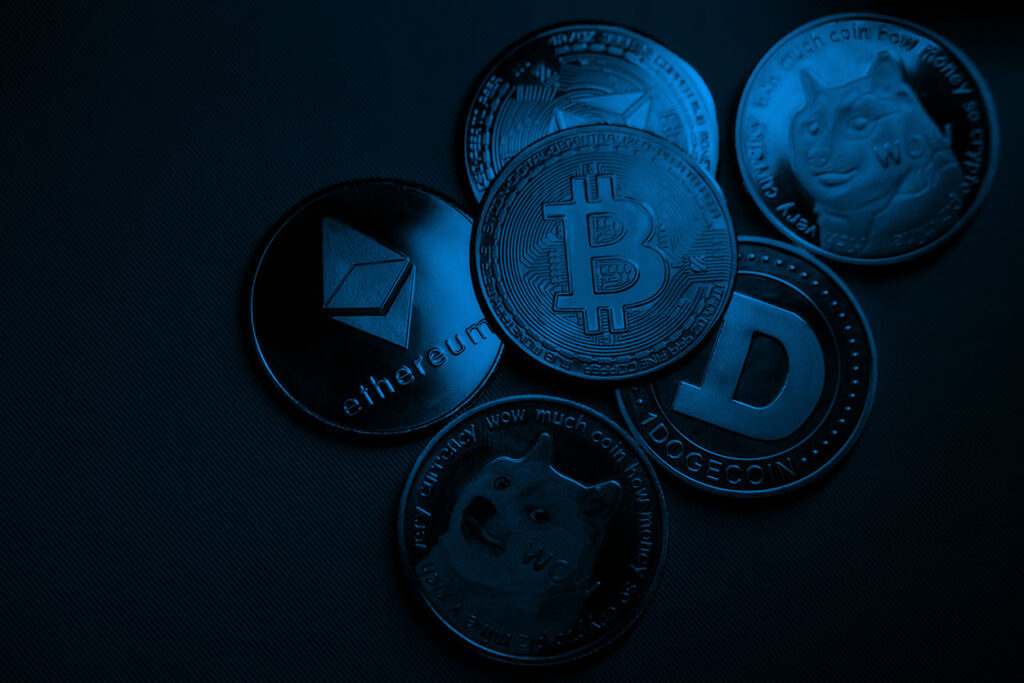Cryptocurrencies vs Crypto tokens: The Main Differences

Nowadays, many people are familiar with the term cryptocurrency. We’ve all heard about different types of cryptocurrencies and how they’re traded. There are even some of us who have invested in this lucrative but speculative digital asset class. However, before making such an investment, one has to research the risks involved as well as the potential gains, and also understand the technical terms.
Sometimes we mistakenly confuse cryptocurrencies with crypto tokens. Despite their similarities, these two are fundamentally different, and it’s important not to confuse them. They both are digital assets. In contrast to cryptocurrencies which have their own blockchain, crypto tokens are built on existing blockchains.
What is a cryptocurrency?
Cryptocurrencies are blockchains’ ‘native currencies’ – such as Bitcoin or Ether – and are created directly by the blockchain protocols on which they run. Frequently, cryptocurrencies are used to pay transaction fees or incentivize users to maintain the network’s security.
By investing in cryptocurrency, investors hope to get good returns or at least get the same value they invested.
A cryptocurrency is decentralized, which means it is not controlled by a central authority. The transactions are recorded on a distributed ledger that is built on a blockchain. This allows the rules to be enforced in an automated and impartial manner.
What is a crypto token?
Crypto tokens are often compatible with cryptocurrencies, but they represent a different type of digital asset. For example, Ethereum is a blockchain and its native token is Ether (ETH). However, there are several other tokens — DAI, LINK, and COMP — that are also based on the Ethereum platform. Similar to cryptocurrency, tokens are a form of value that can be exchanged. However, a token can also represent a physical asset, a utility or service. For instance, some crypto tokens represent real estate and art. Tokenisation is the process of creating tokens and assigning value to them.
Within projects, tokens serve primarily as digital utility assets. The money can be used for a variety of purposes, including raising funding and paying fees. Tokens are currently used by thousands. They can be categorized into five main types:
- Utility tokens
- Transaction tokens
- Security tokens
- Non-fungible tokens
- Governance tokens
Due to the rapid growth of the crypto industry, these unique assets will potentially grow and people will continue to assign value to these tokens based on the assets they represent. In the simplest terms, a token is a ‘smart contract’. A digital or physical asset can be represented by one of these contracts, as they work as rights management tools.
Access to the token can be gained by the person who has the private key to that address. And this person is regarded as the owner or custodian of that token.
Bitcoin: a token or a coin?
When one knows the fundamental difference between tokens and coins in crypto, evaluating whether Bitcoin is a coin or a token is straightforward. Bitcoin has its own blockchain, so it is a coin. Several cryptocurrency projects have been inspired or modeled after Bitcoin, the first cryptocurrency coin. Ethereum, for instance, popularized smart contracts that run if certain conditions are met, expanding on the concept of a decentralized currency.
Non-Fungible Tokens (NFTs)
By the end of 2021, the transaction volume of non-fungible tokens (NFTs) aimed to be at least $17.7 billion. On a blockchain, they act as unique cryptographic tokens that represent ownership of unique content. Even though they can be traded or exchanged, their value cannot be represented equally because they are irreplaceable.
The main difference between cryptocurrency and token
It is not that vast of a difference between crypto coins and crypto tokens, but if overlooked, it could result in huge complexities for investors. Traders can use this simple trick: if it’s a product, they usually need to use crypto coins, but if it’s a service, they can use utility tokens. They differ primarily in what they represent. Tokens represent deeds or assets, whereas crypto coins are essentially digital versions of money.
Conclusion
Coins and tokens are both digital assets, and they share a lot of similarities. As well as representing value, they can be used as a medium of exchange. Their main difference is that coins run on their own blockchain, while tokens do not. Tokens rather run on existing, independent blockchains.
Blockchain-based digital assets such as coins and tokens are essential elements of the crypto ecosystem. Understanding the slight, but important differences between a token and a coin are beneficial to an informed investor.

